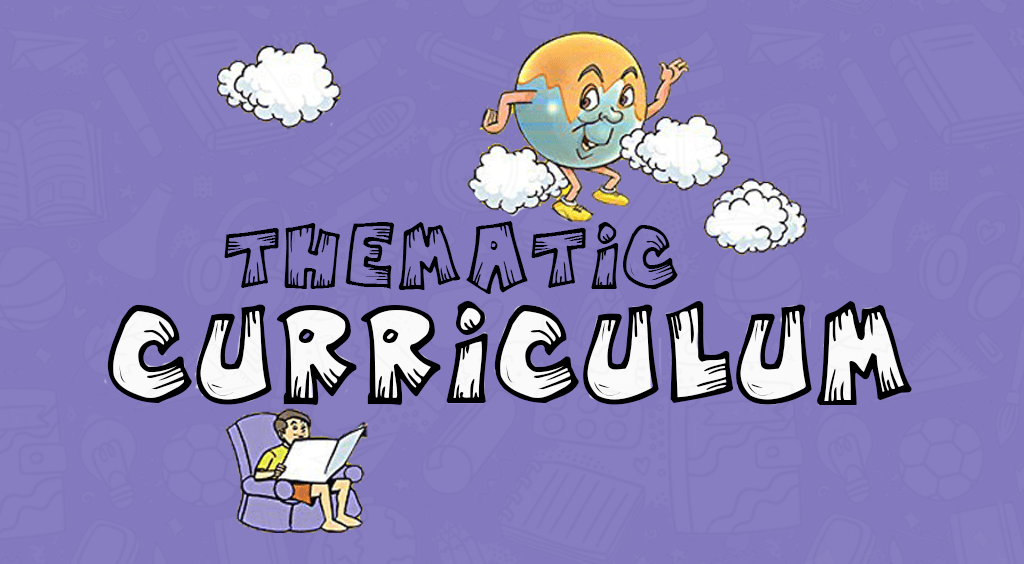What is Thematic Curriculum?
Thematic curriculum is one that centers around a particular theme or idea, and in which all lessons and activities are also centered around this theme. The basis of the thematic curriculum is the belief that knowledge acquisition among students is very efficient when they learn in the context of a coherent and holistic method. Learning around ideas or themes, links content from a variety of disciplines and helps students to see the connection that exists across all disciplines.
How is it different from traditional subject-based learning?
As Thematic Curriculum is based on themes, it allows scope for understanding and expressing thoughts and academic skills, whether it is Reading, Writing, Drawing, Music, or Dance and is all done for a reason. Whereas in a traditional subject-based curriculum, the subjects are studied in isolation, with no link or connection with any other subject. Moreover in this method learning is for the sake of learning, to acquire knowledge which will help in taking the tests and scoring high. In a thematic curriculum, there is a broader level of understanding, students are made to think out of the box. Critical thinking and problem-solving skills are emphasised. Textbook learning, lectures, exams, and prescribed answers, which severely restrict learning are discouraged. So also rote learning which is the accepted method in traditional learning.
What are the advantages?
1) Thematic curriculum creates an intrinsic motivation in students, as topics are meaningful & relevant and learning is more fun. Children learn because they want to, not because they have to. Learning is more effective.
2) Learning is vibrant and lively as theme-based curriculum harnesses the curiosity in the children by making them explore, investigate and combine the knowledge, instead of learning on an individual or piecemeal basis.
3) Thematic curriculum teaches children how to learn, how to think for themselves, how to transfer & apply it. The cognitive skills such as reading, thinking, memorizing and writing are put together in the context of a real-life situation. This promotes understanding and discourages rote learning.
4) Teachers become facilitators of learning, not providers of facts written on a blackboard.
5) Thematic curriculum encourages a hands approach and is a project-based method. It fosters interaction, team work, relationships and total participation.
6) Theme based curriculum associates learning with real-life experiences and with the surroundings. For example, if the theme is pollution not only the scientific reasons are studied but also social causes, how people contribute to pollution.
7) Theme based curriculum integrates all subjects, For example, in a theme centered around birds, a paragraph on birds or a poem on birds is studied in the languages, the environment & habitat along with growth & features forms part of EVS, solving math problems on how far birds travel or how high they fly, birds dance, a song about birds, bird call form the entire content of this theme.
So, if we want our children to develop the skills of a true learner namely-creative thinking, problem-solving, communicating, decision making, and motivation to learn, then Thematic curriculum is the way forward.


